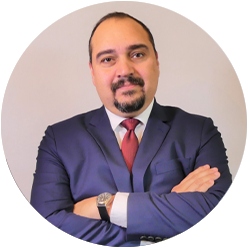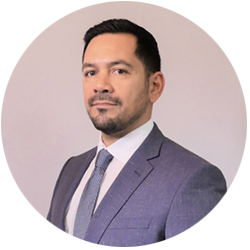Wrongful death cases are complex and emotionally challenging for those left behind. Losing a loved one because of another’s actions or negligence can feel like an unimaginable hardship, and when that loss could have been prevented, it becomes even more painful. In Florida, families have the right to seek justice and hold responsible parties accountable through a wrongful death lawsuit. However, one of the most crucial parts of any wrongful death case is gathering strong evidence. Evidence helps to establish fault, prove the damages suffered, and demonstrate the financial impact the death has had on the family. Understanding why evidence is so important in these cases and knowing what kinds of evidence can be helpful can make a significant difference in the outcome of a wrongful death lawsuit. At, Victory Law Firm P.A , we are here to guide you through the legal process and help you navigate the complexities of your case.
How Evidence Supports a Wrongful Death Claim in Florida
When families pursue a wrongful death case, they are not just filing a lawsuit but are seeking justice for the life lost. The main goal is to hold the responsible party accountable and secure compensation to help ease the financial burdens caused by the death. This is done by proving several key elements: duty of care, breach of duty, causation, and damages. The first step in any wrongful death case is to prove that the responsible party had a duty of care toward the deceased person. Duty of care means that they had a legal responsibility to act in a way that would prevent harm. For example, in a car accident wrongful death case, a driver has a duty to operate their vehicle safely. Once this duty is established, the next step is showing that the duty was breached. Evidence is critical here because it helps show how the responsible party failed in their duty. Whether it was reckless driving, a medical mistake, or a dangerous product, evidence paints a clear picture of what happened.
Different Types of Evidence in Florida Wrongful Death Cases
In Florida wrongful death cases, evidence can come in many forms, each serving a purpose in supporting the claim. One important type of evidence is witness testimony. People who saw what happened or were close to the events surrounding the incident can share their accounts. Witnesses provide real-life details and give clarity to the situation. Medical records and reports are another key form of evidence. These records document the injury or condition that led to the death and can show if negligence played a role. For example, if a person died during surgery due to improper care, the medical records could show that there were lapses in care standards. Police reports and accident reports can also be very helpful, as they usually provide factual details from the scene, noting things like the condition of the vehicles involved in a crash or any immediate observations from law enforcement. In cases involving a product defect, evidence might include the product itself, along with any testing reports showing how the product may have been faulty or dangerous. All of these different types of evidence build a case that can stand up in court.
Why Gathering Evidence Quickly Is Essential
Time is a critical factor in wrongful death cases. Evidence should be gathered as soon as possible because important details can fade over time. Witnesses may forget details, accident scenes may be cleaned up, and crucial documents may become harder to obtain. Waiting too long can lead to losing vital information that could make or break a case. In Florida, there is also a time limit, known as the statute of limitations, for filing a wrongful death lawsuit. Families typically have two years from the date of death to file a case, but gathering evidence can take time. Starting the evidence collection process early ensures that families have enough time to build a strong case and meet the filing deadline.
Preserving and Analyzing Evidence for Court
Collecting evidence is only one part of building a wrongful death case; preserving and analyzing it is equally important. Evidence needs to be handled in a way that maintains its integrity. For example, photographs should be stored properly to avoid fading, and digital records should be backed up to prevent accidental deletion. In some cases, it may be necessary to work with professionals who can help interpret certain kinds of evidence. Medical professionals can explain complex health records, accident reconstructionists can recreate the events of a crash, and engineers can examine product defects. These professionals can provide valuable insights that make the evidence even stronger and clearer in court. Presenting evidence effectively requires careful organization and understanding. Each piece of evidence must be clearly linked to the elements of the wrongful death claim. In court, having a well-prepared case with evidence that is easy to follow can make a significant difference.
Proving Financial and Emotional Losses in Wrongful Death Cases
In addition to proving how the wrongful death occurred, families must also demonstrate the financial and emotional losses they have suffered due to their loved one’s passing. This can include things like loss of income, medical expenses, funeral costs, and emotional pain. Evidence such as pay stubs, tax returns, and financial statements can show the economic impact of the loss. Receipts and bills for medical and funeral expenses further prove the costs that the family has had to bear. Additionally, wrongful death cases allow families to seek compensation for emotional suffering and the loss of companionship. Evidence supporting these claims can come from testimonies by family members, friends, and even professionals like therapists who can speak to the mental and emotional impact of the loss. Gathering and presenting this type of evidence can be challenging, but it is crucial in demonstrating the full extent of damages suffered.
Choosing a Car Accident Attorney Personal Injury Case ValueRelated Videos
The Role of Technology in Gathering Evidence
In today’s world, technology plays a significant role in gathering evidence. Surveillance cameras, cell phone records, and even social media posts can provide important details in wrongful death cases. Surveillance footage, for example, might capture the moments leading up to an accident or show the conditions at a specific location. Cell phone records can sometimes reveal distractions, such as a driver texting before an accident. Social media posts might show evidence of a person’s activities or statements related to the incident. Using technology to collect evidence can provide solid, reliable information that is hard to dispute in court. However, it’s important to gather this kind of evidence quickly, as digital records can be deleted or overwritten. Working with someone who knows how to obtain and preserve digital evidence can help make sure that critical information is not lost.
Challenges of Gathering Evidence in Florida Wrongful Death Cases
While evidence is essential in wrongful death cases, gathering it can be challenging. Witnesses may be reluctant to come forward, or they may not remember the incident accurately over time. Additionally, some evidence, like surveillance footage, might be difficult to obtain because it is controlled by third parties, such as businesses or individuals who might not be willing to share it. Medical records and reports can also be challenging to access due to privacy laws. Another challenge is that responsible parties may attempt to hide or destroy evidence that could be used against them. For instance, in cases involving corporate negligence, companies may resist sharing internal documents or information about their practices. To overcome these challenges, it often requires persistence, knowledge of legal procedures, and sometimes even court orders to compel the release of critical evidence.
Serious Results
The Importance of Professional Legal Guidance in Evidence Collection
Navigating the process of collecting and preserving evidence in a wrongful death case can be overwhelming, especially for grieving families. The process requires knowledge of what types of evidence are needed, how to obtain them legally, and how to present them effectively in court. A Florida wrongful death attorney can provide invaluable support during this process. They can take over the evidence collection process, allowing families to focus on healing while knowing that their case is being built with care and thoroughness. Attorneys have the resources to gather records, interview witnesses, and, if needed, hire professionals to analyze evidence. They also understand the legal requirements and can ensure that evidence is obtained and handled correctly to maintain its strength in court. Working with a skilled attorney can relieve some of the stress associated with wrongful death cases and increase the chances of achieving a favorable outcome.
Evidence is the backbone of any wrongful death case in Florida. It proves the events that led to the death, establishes the financial and emotional impact on the family, and helps ensure that the responsible party is held accountable. Gathering evidence quickly, preserving it carefully, and presenting it effectively can make a tremendous difference in the outcome of a wrongful death lawsuit. Each piece of evidence, whether it’s witness testimony, medical records, financial statements, or digital data, contributes to building a compelling case that honors the memory of the lost loved one. For families in Florida dealing with the tragic loss of a loved one due to wrongful death, having the support of experienced professionals can make the legal process more manageable. Victory Law Firm P.A. is dedicated to helping families seek justice and gather the necessary evidence to strengthen their case. If your family is facing the loss of a loved one due to someone else’s negligence, reach out to Victory Law Firm P.A. for compassionate, knowledgeable guidance that can make a real difference.



